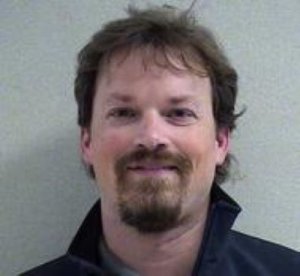Presented By: Aerospace Engineering
Chair's Distinguished Lecture: Leveraging Multiple Information Sources to Enable High-Fidelity Uncertainty Quantification

Michael S. Eldred
Optimization & Uncertainty Quantification Dept
Sandia National Laboratories
Computational simulation continues to advance in its predictive capability through the development of high-fidelity multi-physics/multi-scale simulation models, with unprecedented resolution enabled by the latest high-performance computers. Uncertainty quantification (UQ) methodologies are challenged in this environment, both by the prohibitive cost of computing high-fidelity ensembles and by the increasing number of uncertainty sources that is often induced by this model complexity. One strategy to address these challenges is to harness the utility that exists within hierarchies of model forms (multifidelity) and resolution levels (multilevel and multi-index) in order to control multiple sources of error while optimizing the allocation of simulation resources. By relaxing the need for exclusive reliance on the most expensive models, high-fidelity UQ studies become tractable. This talk will overview our work in R&D of multilevel/multifidelity (ML/MF) algorithms and new directions identified in deployments to DOE mission areas.
About the speaker...
Mike received his B.S. in Aerospace Engineering from Virginia Tech in 1989, his M.S.E. and Ph.D. in Aerospace Engineering from the University of Michigan in 1990 and 1993, and is currently a Distinguished Member of the Technical Staff in the Optimization and Uncertainty Quantification Department within the Center for Computing Research at Sandia National Laboratories.
Mike is an Associate Fellow of the American Institute of Aeronautics and Astronautics (AIAA) and a member of the Society for Industrial and Applied Mathematics (SIAM), the International Society for Structural and Multidisciplinary Optimization (ISSMO), and the United States Association for Computational Mechanics (USACM). Mike currently serves as an alumni member of the AIAA Nondeterministic Approaches Technical Committee and on the editorial board for the International Journal for Uncertainty Quantification.
Optimization & Uncertainty Quantification Dept
Sandia National Laboratories
Computational simulation continues to advance in its predictive capability through the development of high-fidelity multi-physics/multi-scale simulation models, with unprecedented resolution enabled by the latest high-performance computers. Uncertainty quantification (UQ) methodologies are challenged in this environment, both by the prohibitive cost of computing high-fidelity ensembles and by the increasing number of uncertainty sources that is often induced by this model complexity. One strategy to address these challenges is to harness the utility that exists within hierarchies of model forms (multifidelity) and resolution levels (multilevel and multi-index) in order to control multiple sources of error while optimizing the allocation of simulation resources. By relaxing the need for exclusive reliance on the most expensive models, high-fidelity UQ studies become tractable. This talk will overview our work in R&D of multilevel/multifidelity (ML/MF) algorithms and new directions identified in deployments to DOE mission areas.
About the speaker...
Mike received his B.S. in Aerospace Engineering from Virginia Tech in 1989, his M.S.E. and Ph.D. in Aerospace Engineering from the University of Michigan in 1990 and 1993, and is currently a Distinguished Member of the Technical Staff in the Optimization and Uncertainty Quantification Department within the Center for Computing Research at Sandia National Laboratories.
Mike is an Associate Fellow of the American Institute of Aeronautics and Astronautics (AIAA) and a member of the Society for Industrial and Applied Mathematics (SIAM), the International Society for Structural and Multidisciplinary Optimization (ISSMO), and the United States Association for Computational Mechanics (USACM). Mike currently serves as an alumni member of the AIAA Nondeterministic Approaches Technical Committee and on the editorial board for the International Journal for Uncertainty Quantification.